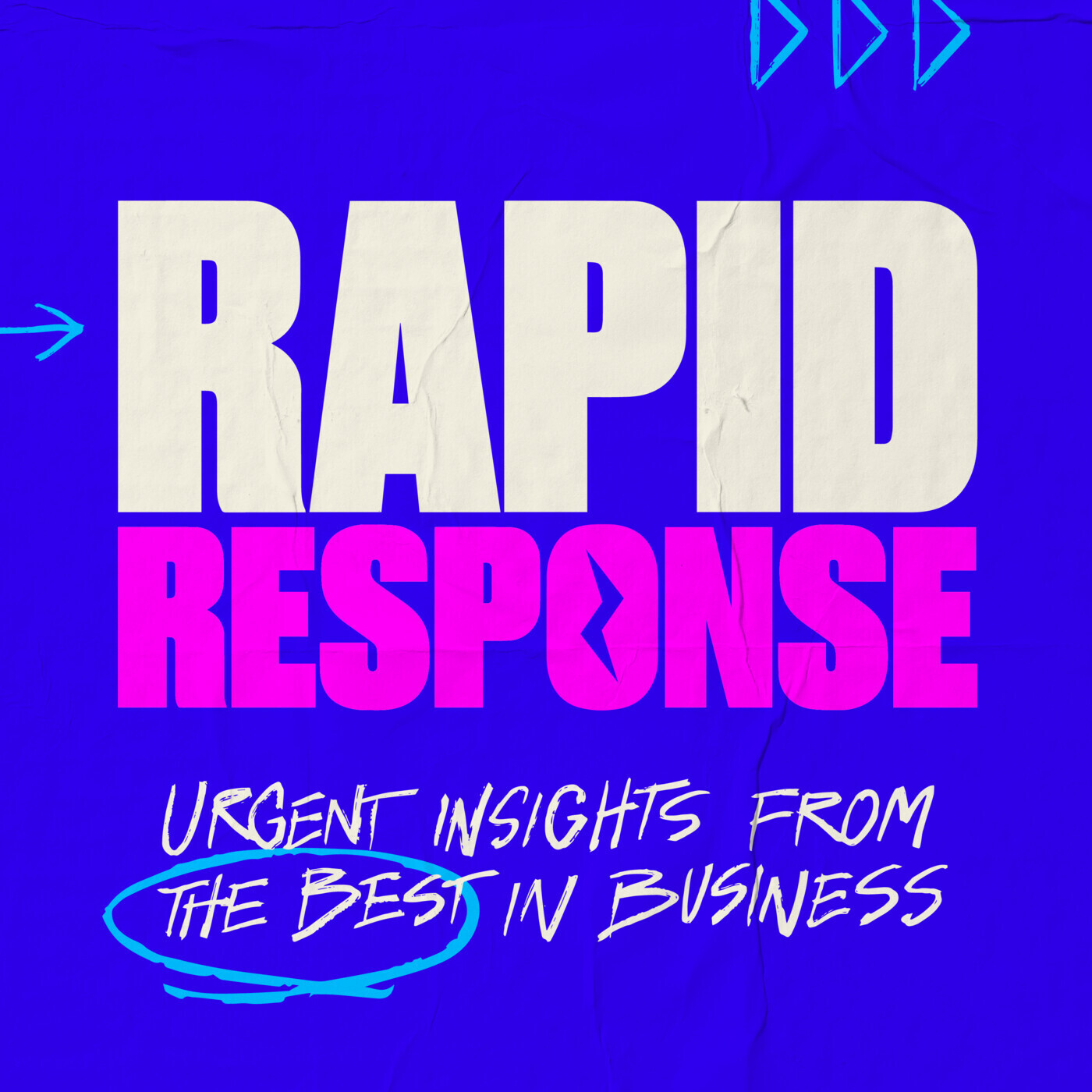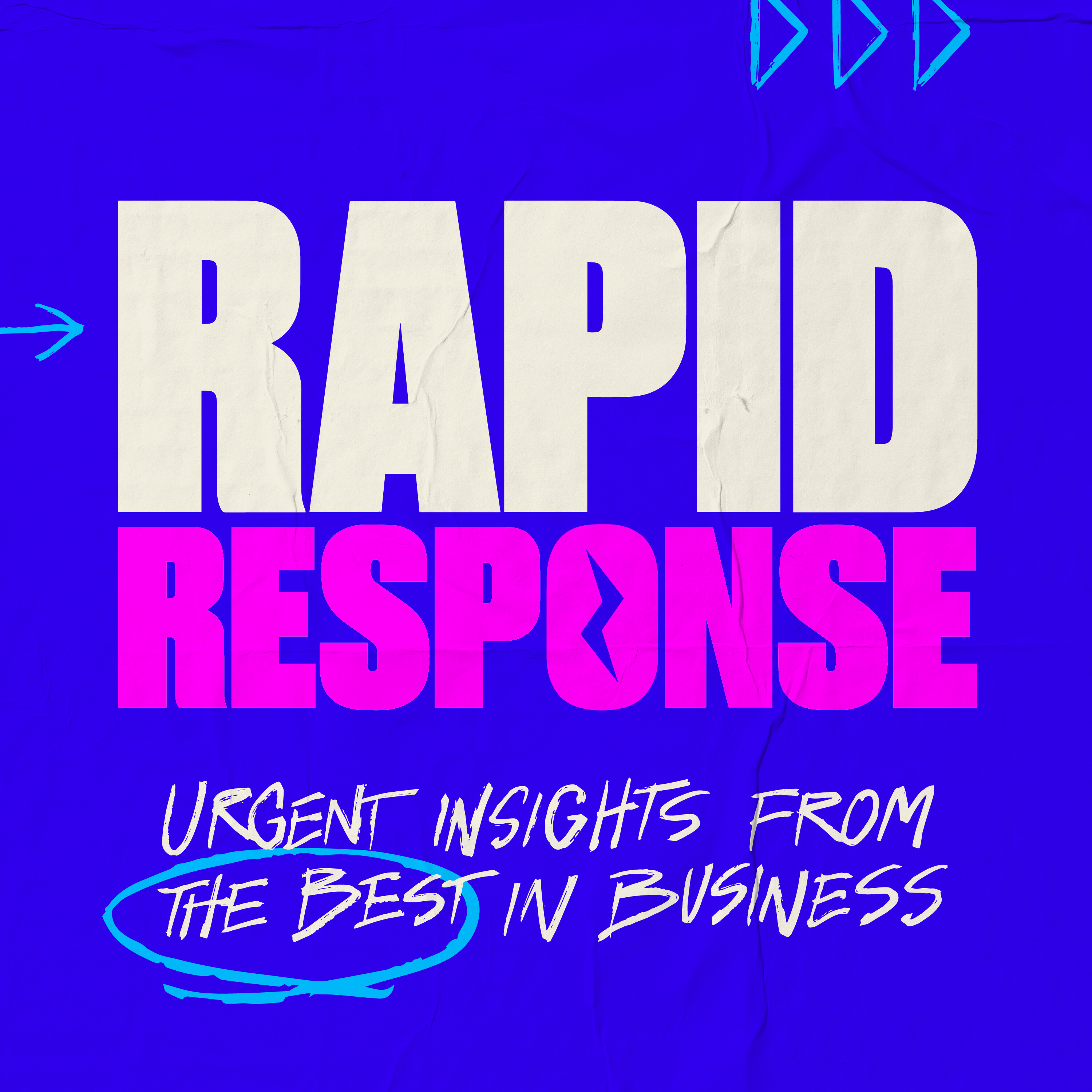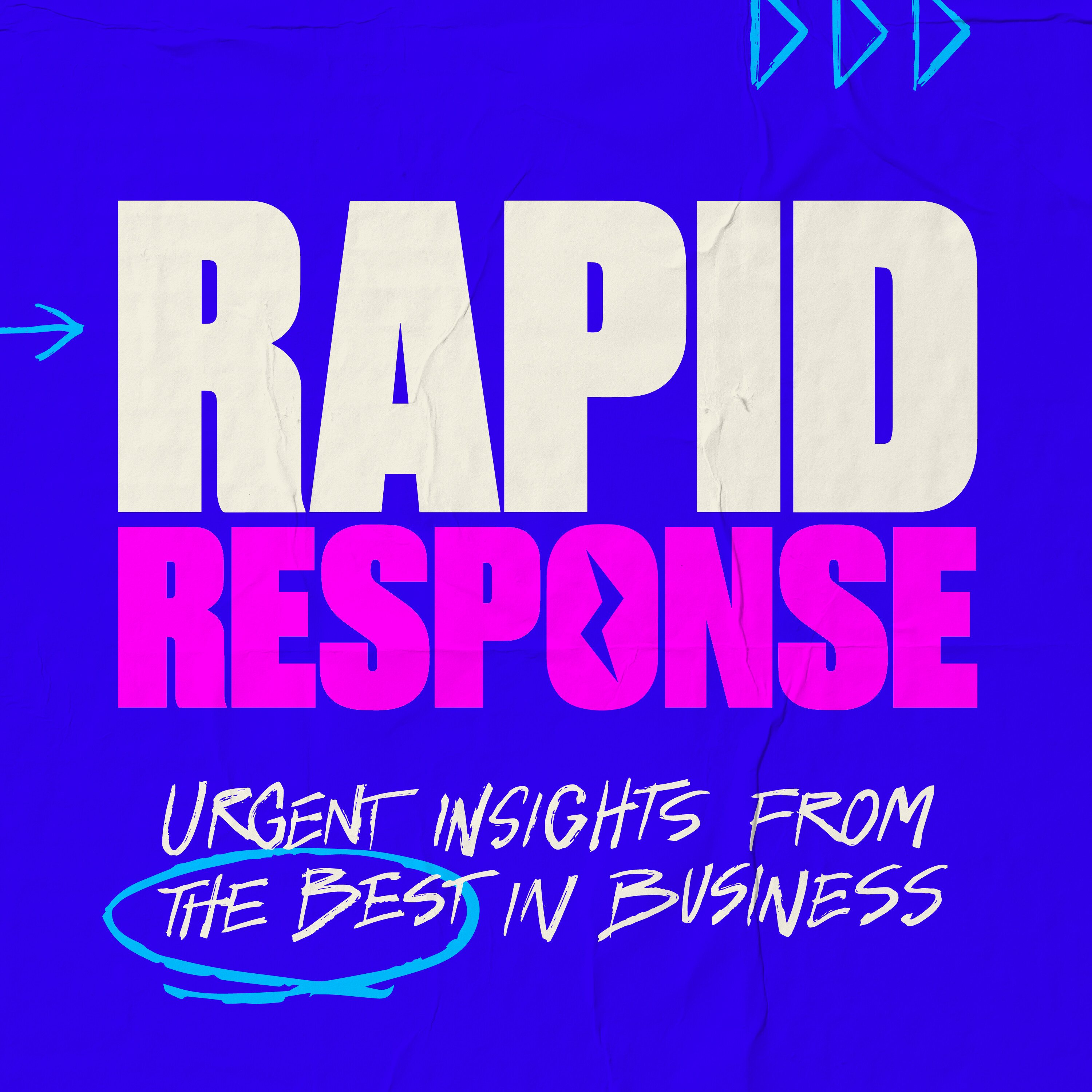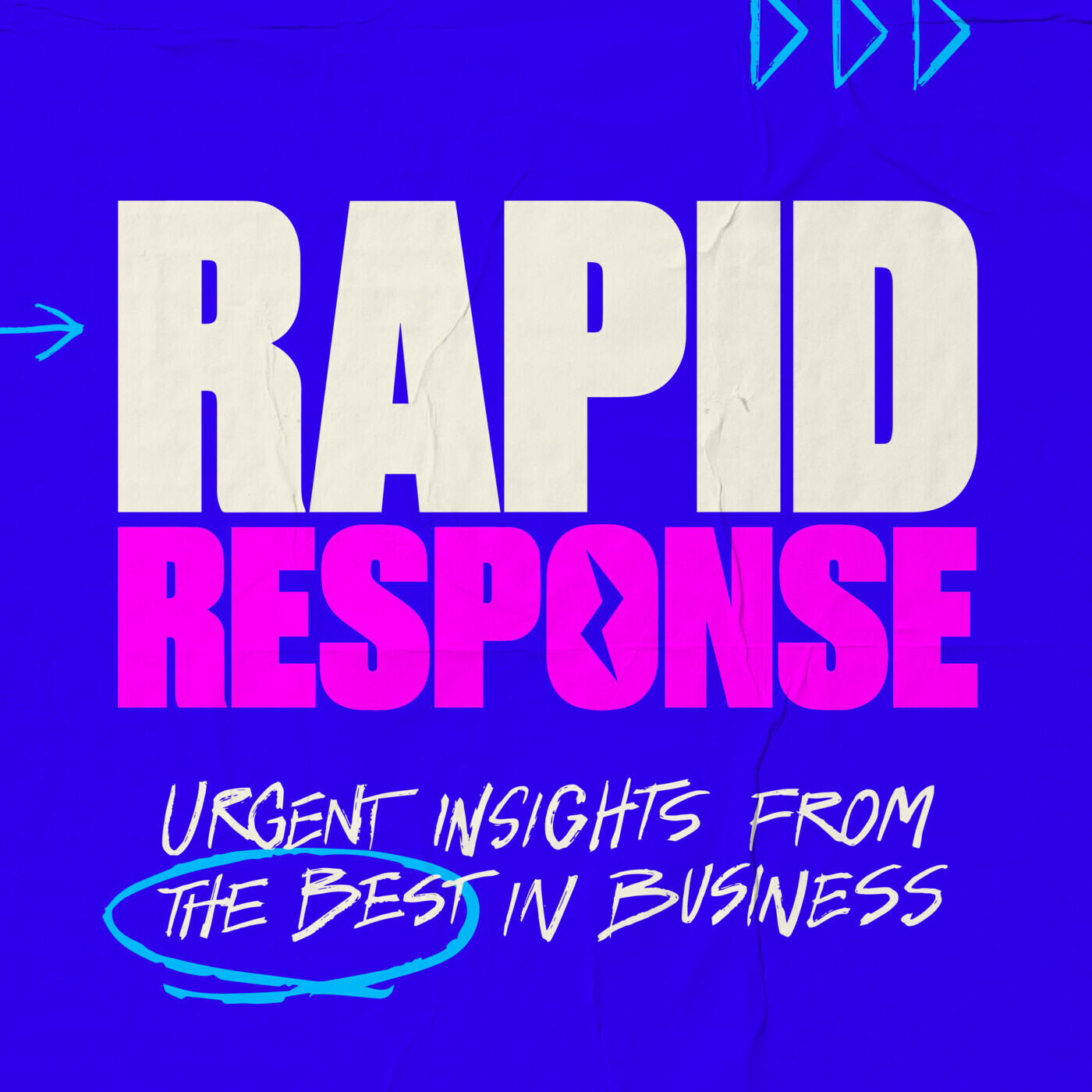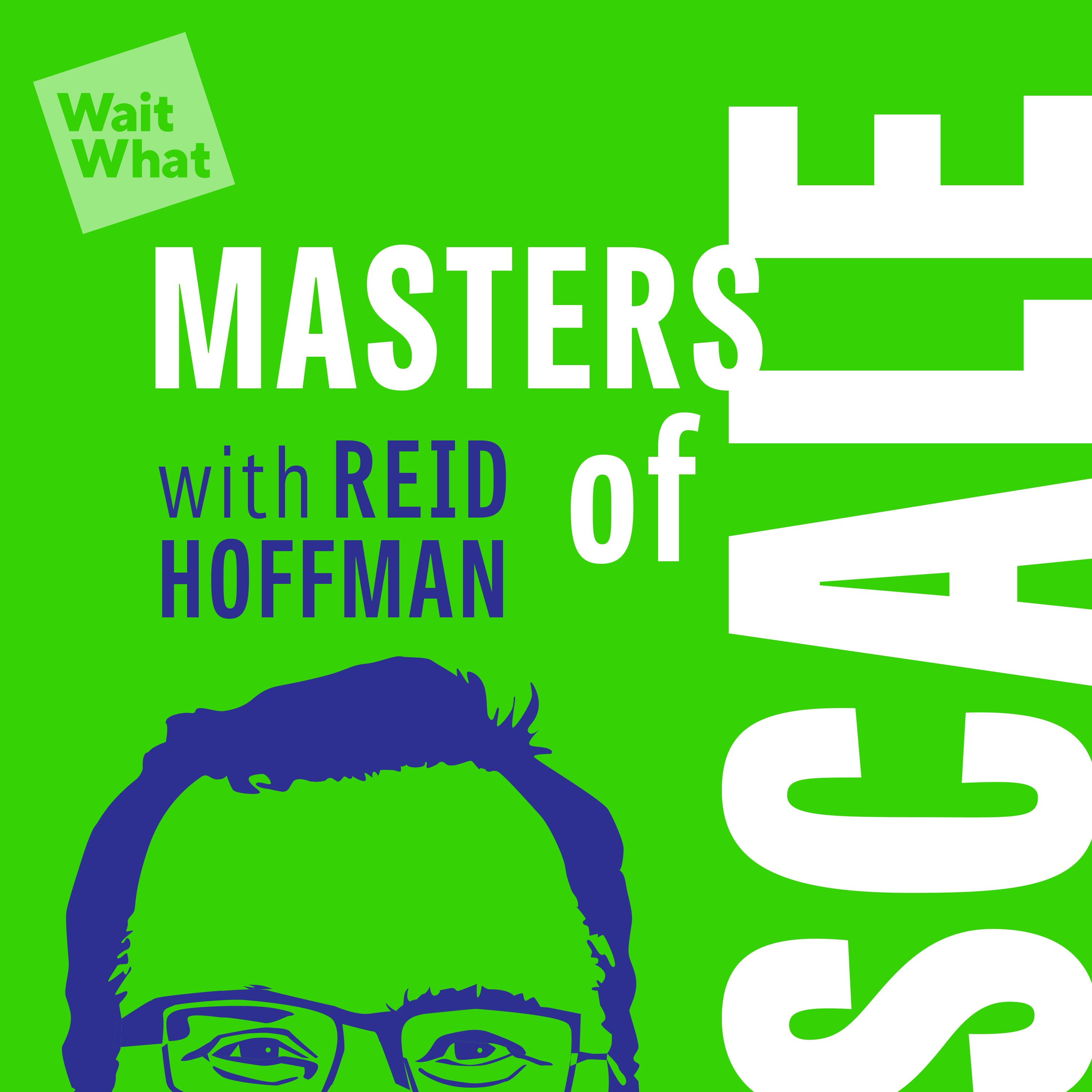
June 27, 2024 • 34min
Grammarly CEO Rahul Roy-Chowdhury: Trust, AI, and the future of work
Masters of Scale

Key Takeaways
- AI is transforming the tech landscape rapidly, creating both opportunities and challenges for companies like Grammarly
- Grammarly's mission is to improve lives by improving communication, which has become even more important with remote work and distributed teams
- Rahul Roy-Chowdhury sees AI as an opportunity to reimagine how Grammarly can help users across the full communication lifecycle, not just editing
- Grammarly is focused on building user trust and giving users control over their data, including the ability to opt out of model training
- Roy-Chowdhury believes AI will be a net job creator, enabling workers to focus on higher-value tasks
- The future of work with AI involves reimagining workflows, synthesizing information better, and focusing on higher-level thinking
- Grammarly aims to augment human communication, not replace it - preserving individual voice and agency is key
- Open source will be critical for the responsible development of AI technology
Introduction
Rahul Roy-Chowdhury recently took over as CEO of Grammarly, the $13 billion writing assistance company, during a time of major disruption in the AI and language technology space. With new AI-powered competitors emerging rapidly, Roy-Chowdhury is tasked with steering Grammarly through this period of change while maintaining its market leadership position.
In this Masters of Scale episode, host Jeff Berman talks to Roy-Chowdhury about his vision for Grammarly's future, how the company is adapting to the AI revolution, and his views on the broader impacts of AI on the future of work and communication.
Topics Discussed
Grammarly's Mission and the Importance of Communication (4:11)
Roy-Chowdhury describes Grammarly's mission as improving lives by improving communication. He explains why effective communication has become even more critical in recent years:
- Teams have become more distributed and global
- The pandemic accelerated the shift to remote work
- There's more asynchronous communication
- The weight of the written word is greater than ever before
He states: "Communication has always been important if you want to go way back. It's what defines us as a species. We're a social species. We communicate with each other, and our success depends on how well we can collaborate and make our intentions understood to a large group of people."
Roy-Chowdhury's Background and Motivation (5:53)
Roy-Chowdhury explains his motivation for joining Grammarly:
- He's a "tech optimist" focused on solving hard, impactful problems with technology
- Previously worked on Chrome browser at Google, seeing parallels with Grammarly's mission
- Views communication as a critical problem to solve with technology
"I'm a tech optimist and I want to work on the hardest, most impactful, most meaningful problems that technology can solve."
Adapting to the AI Revolution (7:38)
Roy-Chowdhury discusses the rapid pace of change in AI and how Grammarly is adapting:
- The speed of AI advancement is unprecedented
- Creates ambiguity and uncertainty, but also opportunity
- Grammarly is reimagining how to increase value for users with AI
- Building on existing strengths like user trust and privacy
"AI is not for the faint of heart. The pace of change in AI is unlike anything I've seen before."
Competition and Market Position (10:38)
On facing new AI-powered competitors:
- Welcomes competition as good for consumers
- Focused on solving real user problems, not looking over shoulder at competitors
- Sees opportunity to expand across full communication lifecycle with AI
- Aims to provide contextual assistance across different tools and platforms
"I welcome it. I'm a firm believer that we want to stay focused on solving real user problems. That's always the foundation of everything we do."
Customer Stories and Impact (12:25)
Roy-Chowdhury shares an inspiring customer story:
- Mark Francis Long, a dyslexic user who runs a dyslexia advocacy group
- Grammarly helps him navigate professional life and overcome challenges
- Sees Grammarly as enabling his "superpower" while providing needed assistance
"He has talked really movingly about how Grammarly has helped him navigate his professional life. He sees Grammarly as a tool that is looking over his shoulder, helping him correct and remove all the inaccuracies and his communication that he felt were holding him back."
Responsible AI Development and the TRUE Framework (19:12)
Roy-Chowdhury explains Grammarly's TRUE framework for responsible AI development:
- Trust
- Responsibility
- User control
- Empathy
Key aspects include:
- Multi-layered security program
- Privacy protections and user control
- Option for users to opt out of model training
"Because trust is a key pillar of how we approach our work, and because that's been true from day one, we have the opportunity for every single user of Grammarly free or paid individual or business to opt out of using their data to train Grammarly's models."
Industry Responsibility and Best Practices (22:02)
On the AI industry's responsibility:
- Need to take responsibility for deploying powerful AI systems seriously
- Focus on practical issues like data quality, model evaluation, and safety measures
- Grammarly open-sourced "Seismograph" for sensitive text detection
- Sharing best practices to help ensure responsible AI deployment
"We as an industry need to take our responsibility to deploy powerful AI systems very, very seriously. This is a very profound shift in how we do our work."
Open Source and Transparency in AI (24:30)
Roy-Chowdhury's views on open source in AI:
- Believes open source is critical for the future of AI
- Transparency helps harden systems and build trust
- Cites historical examples like Linux vs Windows
"Given the power of the impact that AI can have on how we do our work, I think the sunlight that open source brings is something that we as a society, as an industry absolutely should be pushing for."
AI and the Future of Work (25:59)
On AI's impact on jobs and the workplace:
- Believes AI will be a net job creator, enabling focus on higher-value tasks
- Some jobs will be displaced, but new opportunities will emerge
- People who know how to use AI effectively will have an advantage
- Encourages embracing AI to augment skills and capabilities
"I do think that AI will be a net job creator. You know, back in the day when ATMs were first getting widely deployed in the US, there was a lot of fear that bank teller jobs would be extinct. Thing of the past. But the reality is what happened was ATMs allowed bank branches to be created at a much lower cost. Therefore there were many more bank branches and therefore the need for tellers only increased."
Grammarly's Stance on Global Issues (29:01)
Roy-Chowdhury discusses Grammarly's decision to pull out of Russia after the invasion of Ukraine:
- Ukraine is core to Grammarly's identity and team
- Decision was about supporting Ukrainian team members
- Company takes stands on clear values alignment issues, not everything
"This was really about showing our team in Ukraine that we were behind them 100%. And so we canceled Grammarly availability in Russia and Belarus because there was active military operations against people that we knew who were colleagues of ours in harm's way."
AI-Enabled Future of Work (30:40)
Roy-Chowdhury's vision for the AI-enabled workplace:
- Reimagining workflows and information synthesis
- Making work more focused on higher-level thinking
- Reducing drudgery and making work more enjoyable
- Using AI as a tool to augment human capabilities, not replace them
"The better future driven by AI has got to rethink how we do our work and how we go about our day to day lives. And so the vision we have for Grammarly is that we reimagine your workflows, we reimagine how you synthesize information, get insights from your information to do your work better, make it more fun, make it more focused on higher level thinking versus drudgery, and that's what the future will look like."
Preserving Individual Voice and Agency (32:47)
On maintaining individual voice and agency with AI writing tools:
- Writing is thinking - doesn't want to outsource critical thinking
- Communication style is core to personal identity
- Grammarly aims to enhance, not replace, individual voice
- Giving users agency and control over the AI assistance
"The way I sound is so much a part of who I am as a person, and that's true for everyone. The way we sound defines who we are as human beings the way we communicate. And so the role of a tool like Grammarly is not to replace that with some sort of a lowest count denominator or robotic sounding or generic sounding output, but to keep true to your voice, to make sure that you are in control of the experience, that you have agency in the experience, that you're not outsourcing your thinking, and use Grammarly as an aid, as a tool that gives you superpowers to show up better."
Conclusion
Rahul Roy-Chowdhury is steering Grammarly through a period of intense disruption and competition in the AI-powered communication tools space. His approach combines embracing AI innovation with a strong commitment to Grammarly's core values around user trust, privacy, and empowerment.
Roy-Chowdhury is optimistic about AI's potential to augment human capabilities and create new opportunities, while also emphasizing the need for responsible development practices like transparency and open source collaboration. As AI reshapes the future of work and communication, Grammarly aims to play a key role in helping people communicate more effectively while preserving their individual voices and agency.

